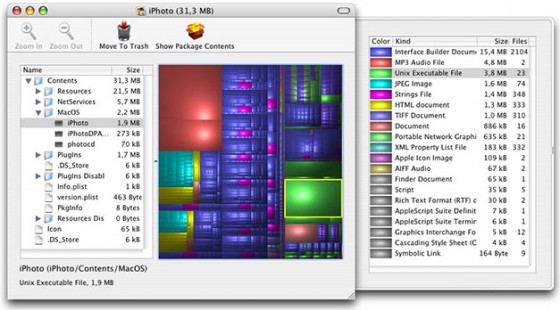

This is free software: you are free to change and redistribute it. It shows the sizes of files and folders in a special graphical way called.
Reviews on disk inventory x for mac for mac os#
License GPLv3+: GNU GPL version 3 or later. Disk Inventory X is a disk usage utility for Mac OS X. I use the following binaries on my system: $ du -versionĬopyright (C) 2021 Free Software Foundation, Inc. You might want to use du's -B option too, to round up to the nearest G, for example.Īnother useful du argument might be -a to list files, not just directories. Binary prefixes can be used, too: KiB=K, MiB=M, and so on.īear in mind that sort just sorts on the numerical value, not the unit size. Units are K,M,G,T,P,E,Z,Y (powers of 1024) or KB,MB. Drive Scope is an advanced SMART drive-testing and health-warning application. The SIZE argument is an integer and optional unit (example: 10K is 10*1024). It shows the sizes of files and folders in a special.
Reviews on disk inventory x for mac for mac os x#
t exclude entries smaller than SIZE if positive, or entries greater than SIZE if negative. As the original author states, Disk Inventory X is a disk usage utility for Mac OS X 10.3 (and later). Disk Inventory X is the best of both worlds, giving you both text listings of files and folders as well as graphical representations. On more than one occasion it has helped me track down a large iMovie, iDVD project or other large video files I thought were deleted. It gives you a graphical display of what is taking the space up on your hard drive. Disk Inventory X is a great, free (gpl) software only available for Mac, that is part of the category Utilities with subcategory Disk & Files. Note that du's -t 1G argument can take other size parameters too (from man du): Disk Inventory X works quite well on Macs and I have had it installed on almost every Mac I have owned. View how much space your files take in your Mac. R # reverse the sort, effectively putting the largest files and directories first n # compare according to string numerical value

Inspired by this answer, I came up with the following to find directories of 1 GB or greater: du -ht 1G / 2>/dev/null | sort -nrīreakdown du -ht 1G / 2>/dev/null | sort -nrĭu -h # print sizes in human readable format (e.g., 1K 234M 2G)Ģ>/dev/null # redirect stderr (error) output to /dev/null, effectively ignoring it


 0 kommentar(er)
0 kommentar(er)
